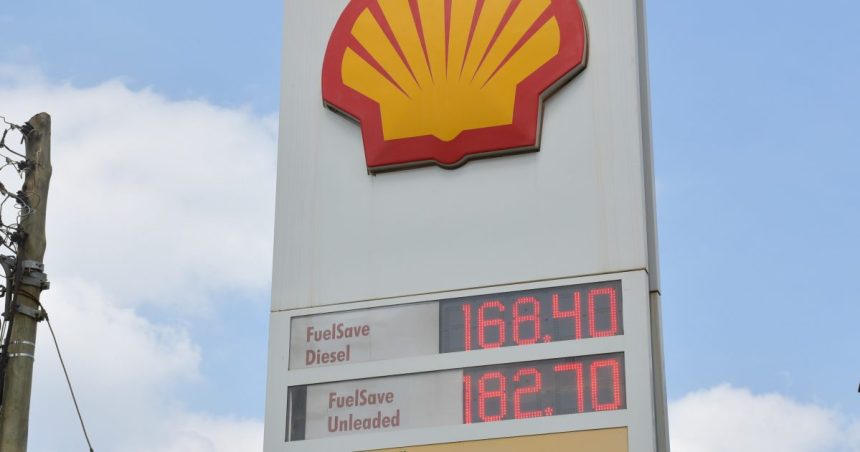When Russia launched its full-scale invasion of Ukraine in early 2022, Kenya was one of the first African countries to condemn Russia’s actions. It was clear that the war could significantly damage the Kenyan economy, as the country is almost entirely dependent on imports for its conventional fuel supply. Russia was in 2022 the world’s third-largest oil producer, and its oil exports were swiftly hit by international sanctions due to the invasion.
The sanctions successfully drove down the price of Russian oil and the country’s profits from it accordingly.
But the extent of the damage caused by Russia’s invasion of Ukraine to Kenya’s economy is now clearer than ever. Even though Kenya is one of Africa’s leading producers of renewable energy, with more than 80% of the country’s electricity generated by wind, solar, geothermal, and hydro power plants, fuel for transport — as well as commercial and industrial gas — is almost entirely imported. These imported fuels remain critical to the economy.
“Whenever there is a problem with the supply of fuel anywhere in the world, the people on the ground — whether in the east or the west — feel it,” said Lensa Omune, a research officer at the International Food Policy Research Institute in Nairobi. “The entire economy is disrupted.”
Moreover, Russia’s invasion of Ukraine also slowed the free flow of grain around the world, since Ukraine was previously the source of around 10% of the global trade in wheat, corn, and barley. Exports were cut and prices went up, undermining global food security and exacerbating the fragility of the food supply chain in East Africa against a backdrop of drought and extreme weather events.
The price of fuel has more than doubled over two years. That affects electricity prices at home, and it affects businesses.
Kalya Kiptiony, investment analyst
Fuel is Kenya’s economic lifeblood
After the start of the war, the price of fuel in Kenya rose, on average, 7.6% every month. By mid-2023, prices were at a 12-year high, before the increases slowed somewhat towards the end of the year and at the beginning of 2024. Fuel is vital to the urban and agricultural economies: when petrol and diesel costs rise, so do prices for everything else. In December, the cost of petrol stood at $1.39 per liter, just a fraction below the all-time high recorded in the midst of the global financial crisis in 2008.
Prices up, currency down
“The price of fuel has more than doubled over two years,” said Kalya Kiptiony, an investment analyst based in Kenya. “A good portion of the increase happened between 2022 and 2023. That affects the pump price of fuel and electricity prices at home, and it affects businesses. Part of the reason has been the way that the Russia-Ukraine war destabilized supply chains so commodity prices went up including prices for fuel.”
Although Kenya gets most of its oil from the Gulf, Russia’s invasion of Ukraine led to a spike in fuel prices worldwide. Just as it seemed as if this cycle of price instability might be abating, increased global instability is already pushing up energy prices again.
For Kenyans, a rising import bill for commodities, including fuel, is having an economy-wide impact: the Central Bank recently increased interest rates to 12.5% to cope with inflation, which is now running at almost 7%, as well as increasing taxation in the wake of an almost $1 billion assistance deal agreed with the IMF in November 2023.
The downward spiral
Kenya is one of the strongest and most diversified economies in Africa, but it is facing the headwinds of climate change and geopolitical instability. War in Europe is adding to those headwinds: the knock-on effects of Putin’s invasion of Ukraine are continuing to undermine growth and the standard of everyday living in Kenya, and making it harder to deal with the effects of regional drought.
In a report late last year, the UN described just how factors like drought, inflation, and fuel and food price rises are combining to undermine livelihoods in Kenya. “Faced with impossible choices, women have forgone their own needs, and have often prioritized their family receiving meals over themselves,” said the report. “Girls have been pulled out of school for early marriage, and families have been separated as men and boys seek forage and food for livestock.”
This amounts to a slow-burning crisis for Kenya — slow but also acute — and a crisis that is continuing to get worse as the combination of climate and economic effects brings more hunger and more deprivation. While the government of Kenya is responding to these challenges, without a fair and lasting peace in Ukraine, the situation will continue to be exacerbated by a fuel price penalty that Kenya does not deserve.



